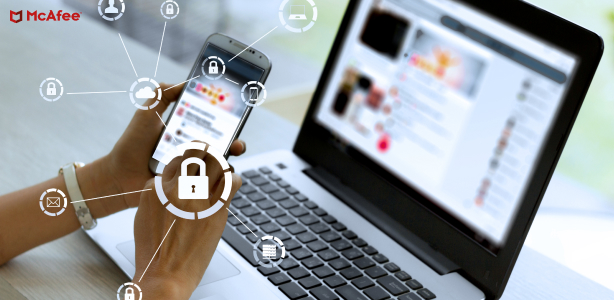Perception plays a huge role in many aspects of daily life. However, the reality of something is often not as powerful as the idea may have been—and advertisers as well as brands more often than not take full advantage of this fact. Privacy in the online world has become a precious, if not priceless, commodity, but sometimes the perception of privacy can be just as valuable.
Facebook recently announced at their f8 conference that they would be debuting an “anonymous login” feature to help users protect their privacy when logging into other sites with their Facebook account. This new sign-in option will serve as a complement to the existing “log in with Facebook” button available on many popular third-party apps and services. It allows you to login using your Facebook credentials, without sharing your information or activity with the third-party site or app.
In tandem with their recent “privacy checkup” campaign, this new anonymous login option is another way to improve the company’s image in the face of increased scrutiny around information collection and privacy policies. Facebook has received a lot of attention when it comes to the amount of information they collect and store on the platform’s 1.3 billion plus users, who willingly and (sometimes unknowingly) share a considerable amount of valuable data about themselves. While the anonymous login feature is certainly a step in the right direction, it many not actually be as anonymous as it seems.
Opting for the anonymous login option when signing into your favorite mobile app does keep your information and activities hidden—but only from the third-party, not Facebook. The anonymity of this new feature only works on the sites and apps a user is logging into—Facebook can still see and record everything you do during that time on the app or site. When logging into apps via Facebook, it is also important to remember that Facebook gets information about your location data too.
The privacy benefits of the anonymous login may be a mixed bag when it comes to perception and reality. When a user signs in with the anonymous login, the number of parties involved is reduced, but it also means that Facebook will be the only one with access to the valuable information about said user. As more sites incorporate this anonymous feature, it will mean that companies will have to go through Facebook to get access to user data instead of mining it themselves.
The situation is not as sinister as it may seem, but that doesn’t mean you should let your guard down when using social media on mobile devices. The promise of anonymity doesn’t always line up with the reality, which is why it is crucial to take an active approach to protecting your own privacy online. Keeping the amount of data you make available for collection to a minimum by using anonymous features like the one from Facebook is a good way to start, but it certainly shouldn’t be the only method utilized. Aside from how you log into various apps, being aware of how much, and what, you share via social networks is key.
Safety Tips
Below are some important safety tips to keep in mind when surfing the web or using social networks via your smartphone or tablet:
- Wrangle how much you share by managing your privacy settings. Make sure that you are only sharing information with friends and family, as well as only the information you want to have shared via your device. For instance, if you don’t want people to know where you are at all times, make sure to turn off location tracking. Check settings regularly in the event there are any changes.
- Disable auto-logins on mobile apps. While it may be convenient to not have to enter your username and password, avoid setting your apps to automatically log in—and save yourself some worry about what might happen should your phone fall into the wrong hands.
- Keep the information your reveal online or via social media apps to a minimum. The Internet is forever and once you put something out there, whether it’s a Facebook post, tweet or comment, it will live online indefinitely. Additionally, be wary of other users or companies asking for personal information online and never share your home address, phone number, or other personal identifying information via these channels.
- Beware of what third-party apps have access to. Aside from using features like the anonymous login from Facebook, it is important to monitor what and how much apps can access. Frequently check app permissions on your mobile device to make sure they can’t get ahold of more information than they need.
- Create separate online accounts. Logging in with your Facebook account or Gmail address may be convenient, but it also puts your privacy at risk by allowing sites to collect information on you and your behavior. When possible, create a separate account when signing up for new sites or apps.
- Take the extra step with comprehensive mobile security. A company’s promise that their app is secure, or sign-in is anonymous, is not always enough. McAfee® Mobile Security, free for both iOS and Android devices, provides backup and recovery for contacts on both versions. Additionally, Android users are warned when apps ask for more access than they really need.













